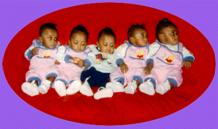Cell Basics
by Joel Comiskey
March 2007
Since the cell is the crown jewelof the cell church, I encourage pastors and leaders to carefully define it. The most common definition of a cell (and the one I follow) is this: a group of three to fifteen people that meets weekly outside the church building for the purpose of evangelism, community, and discipleship with the goal of multiplication.

This definitionis flexible enough to encompass different kinds of homogeneity. The most common homogeneous cell is the family cell group. Intergenerational cells or family cellshave been around for a long time and are desperately needed—especially in the light of the family break-downall over the world.
More recently, however, churches have promoted men, women, and youth cells. Bethany World Prayer Centerhas found that men, for example, practice greater transparencywhen meeting with other men in cell groups.
Another exciting type of homogeneity—and mostly untapped—is homogenous groups for recovering alcoholics, drug users, etc. I’m not referring to traditional recovery groups that meet for a short time and then break up. I’m referring to clearly defined cell groups! These cell groups just happen to focus on a particular group of needy people.
God began to open my heart to this possibility when teaching a cell church course at Simpson Universityin 2005. One of the students was a trained counselor for sex offenders. He became passionate for cell church and saw a perfect fit between what he was doing and cell ministry. I hesitated because I thought he was trying to create traditional church programs. Yet, he convinced me that he was going to follow the cell definitionI taught in class to minister and multiply groups among this homogenous grouping.

Several months later, one of the pastors I’m coaching, saw exciting evangelism and multiplication results as he focused on recovering alcoholics and drug users. One by one, AA (Alcoholic Anonymous) and NA (Narcotics Anonymous) people connected to the cell and celebration. They were converted, baptized, and trained as future cell leaders. Pastor Mike Erickson, associate pastor at Big Bear Christian Center, writes, “Our group, made up of AA people, started with lots of time spent on “Welcome” and sharing personal testimonies. After several weeks of this we began to teach the foundations of the Christian faith through application oriented cell lessons. One night Keith pointed to Dustin across the room and said “don’t you need to get saved?”
“Dustin said ‘Yes’ so I put a chair in the middle of the room and Dustin gave his heart to Jesus in a powerful way. When that time was finished Kenny said to his girlfriend, ‘Tiffany, do you want to get saved too?’ and she said ‘Yes’ so we all were so excited and put a chair in the middle of the room and she also confessed Christ as her Savior. In the next few weeks two or three others came to the Lord and others began to rededicate themselves to the Lord. Soon after the salvation and rededication experiences happened they wanted to be baptized in water. We met for teaching, and in two separate baptism services 8 were baptized.”
Pastor Mike continues, “One couple who found Jesus in the cell group and were baptized confessed in one of the cell meetings that they were living together and needed help because they were now under conviction. So over the next several weeks I gave them marriage counseling and performed the ceremony.”
Pastor Mike has seen twenty-two people baptizedfrom AA and NA programs and has planted three new groups among these people. Many are now attending Big Bear Christian Center. I asked Mike to write an article on his experience and you can access it here.
I don’t think we’ve unwrapped the potential of homogenous groups in the cell movement. Remember that people in groups like AA and NA are already accustomed to meeting together and already transparently sharewhat’s happening in their lives. And isn’t this what the cell group is all about? I’ve becoming increasingly convinced that these groups are a ripe target for cell outreachand discipleshipthrough cell church ministry.
